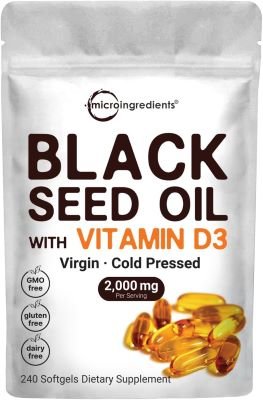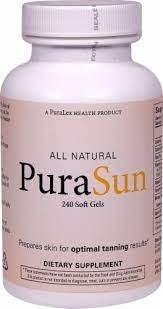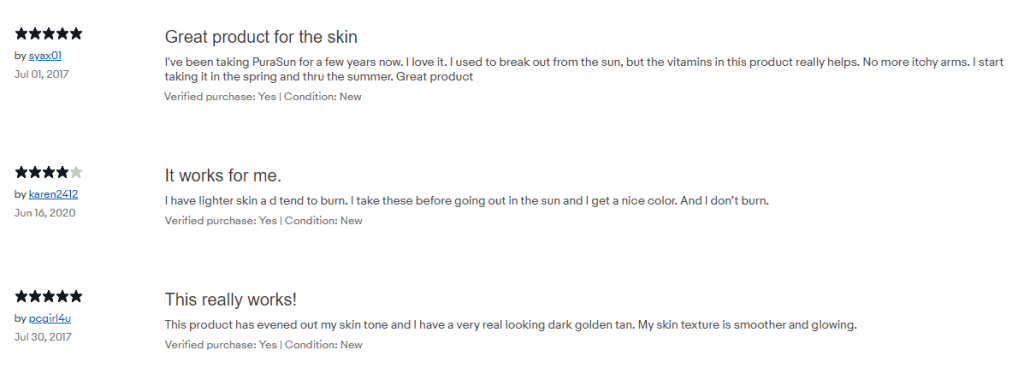The 3 Best Supplements For Tanning (Natural)

Are you tired of feeling self-conscious about your pale skin at the beach or pool? Are you ready to achieve a golden, healthy-looking tan but don’t want to expose yourself to harmful UV rays?
The solution is simple: try incorporating some of the best supplements for tanning into your routine. These natural, safe options can help give your skin the boost it needs to achieve that perfect summer glow.
Keep reading to discover the top three supplements that will have you feeling confident and radiant in no time.
How do tanning supplements work?
Tanning supplements work by providing the body with the nutrients it needs to produce melanin, the pigment that gives skin its color.
When the skin is exposed to the sun, it produces more melanin as a way to protect itself from the harmful UV rays. Some people may have difficulty producing enough melanin to achieve a deep, natural-looking tan, and this is where tanning supplements can help.
These supplements typically contain a combination of vitamins, minerals, and other nutrients that are believed to support healthy skin and promote a tan.
What are some nutrients that are proven to increase melanin?
There are several nutrients that have been shown to have a positive effect on tanning. These include:
- Beta-carotene: This is a pigment found in plants that is converted into vitamin A in the body. It is believed to increase the production of melanin, which gives skin its color. Beta-carotene can be found in foods such as sweet potatoes, carrots, and leafy greens.
- Vitamin D: This vitamin is essential for healthy skin and is produced by the body when the skin is exposed to UVB rays. It can also be found in foods such as fatty fish, eggs, and fortified milk.
- L-tyrosine: This is an amino acid that is involved in the production of melanin. It can be found in foods such as chicken, turkey, and nuts.
- Copper: This mineral is involved in the production of melanin and can be found in foods such as shellfish, nuts, and seeds.
It’s important to note that while these nutrients may help to support healthy skin and promote a tan, they will not provide the same level of protection against the sun’s harmful rays as a sunscreen.
It is still important to use sunscreen and other sun protection measures when spending time in the sun.
Best Supplements for tanning
Now that you understand how these supplements work, here are the 3 best supplements for tanning that will help you increase your body’s melanin levels.
1. Black Cumin Seed Oil by Microingredients

Black cumin seed oil, also known as Nigella sativa oil, is believed to have a number of health benefits, including supporting a healthy immune system and promoting healthy skin.
Some people also claim that it can help to increase melanin production, which is the pigment that gives skin its color.
This could potentially lead to a more natural-looking tan.
Micro Ingredients Black Seed Oil Liquid Softgels contain 1000mg of premium, cold-pressed black cumin oil, sourced from Nigella Sativa seeds grown in Egypt.
These softgels are non-GMO, vegan friendly, and free of preservatives, artificial colors, flavors, soy, and gluten.
They have also been third party lab tested for purity and safety. And with a 240 count bottle, you’ll have plenty of opportunities to incorporate this powerful supplement into your daily routine.
Plus, reviews of this product on Microingredient’s website show that it the best quality of Black cumin seed oil that you can find in the market and, most importantly, that it actually works in relation to tanning. Here’s a screenshot of a review taken from the product’s page.

2. Barley Grass Powder by Microingredients

You may wonder what this Barley grass powder is doing in this list of the best supplements for tanning.
Well, let me explain.
Microingredients Barley Grass Powder is loaded with Vitamin D3 and Carotene – which are two nutrients that are known to increase melanin production and may help to promote a natural-looking tan.
In fact, this barley grass powder contains 30 times more vitamin D3 than there is in cow’s milk and 6.5 times more carotene than spinach.
Plus, it is packed with all essential amino acids, it is rich in fatty acids, and immune vitamins, such as vitamin C and zinc.
It also contains enzyme, dietary fiber, and flavonoids to support overall health and wellness. It also has 7 times more vitamin C than oranges and 4 times more vitamin B1 than whole wheat flour.
Finally, this is an all natural product that you can easily incorporate in your smoothies and green juices without interfering with the previous mention supplement, Black Cumin Seed Oil.
3. PuraSun by Sante Active

My final recommended supplement for Tanning is the PuraSun supplement by Sante Active.
This supplement contains 5 different types of carotene (not only beta-carotene) that promote faster skin tanning.
More specifically PuraSun contains – among others – Alpha-Carotene, Beta-Carotene, Crytoxanthin, Lutein, Zeaxanthin, Vitamin E, Tocotrienols, Gamma Linolenic Acid, Carrot Oil(Root), Sunflower Seed Oil, Beeswax, Soybean OIl, Palm Oil, Squalene, Beta-Sitosterol, Stigmasterol, Campesterol, and Co-enzyme Q10.
This supplement has also Borage Oil which is great ingredient for softening the skin and making it overall more healthy.
From reviews found on eBay, this supplement seems to be working for users. Here’s a screenshot I took that show peoples results with this supplement.

By the way, this supplement is available on Amazon as well – for those of you who might prefer doing their shopping from there.
Does beta-carrotene turn your skin orange?
Beta-carotene is a pigment found in plants that is converted into vitamin A in the body. It is responsible for the orange color of some fruits and vegetables, such as carrots and sweet potatoes.
When taken in large amounts, beta-carotene can cause the skin to turn yellow or orange. This is known as carotenemia and is typically harmless. It can be reversed by reducing the intake of beta-carotene or by increasing the consumption of other pigments, such as chlorophyll.
How many types of carotenes are there?
There are several types of carotenoids, including alpha-carotene, beta-carotene, gamma-carotene, and lycopene.
All of these carotenoids have been shown to have potential health benefits, including supporting healthy skin and eyesight.
Frequently Asked Questions
Bottom Line
Overall, it’s clear that there are several nutrients and supplements that can help to support healthy skin and potentially promote a natural-looking tan.
It’s important to note, however, that while these supplements may support healthy skin and potentially promote a tan, they are not a substitute for sunscreen and other sun protection measures. It is still important to use sunscreen and limit your exposure to the sun’s harmful UV rays to protect your skin from sunburn and other damage.
With that being said, incorporating some of these supplements into your routine could be a safe and natural way to achieve a radiant, healthy-looking tan.
Read Next
